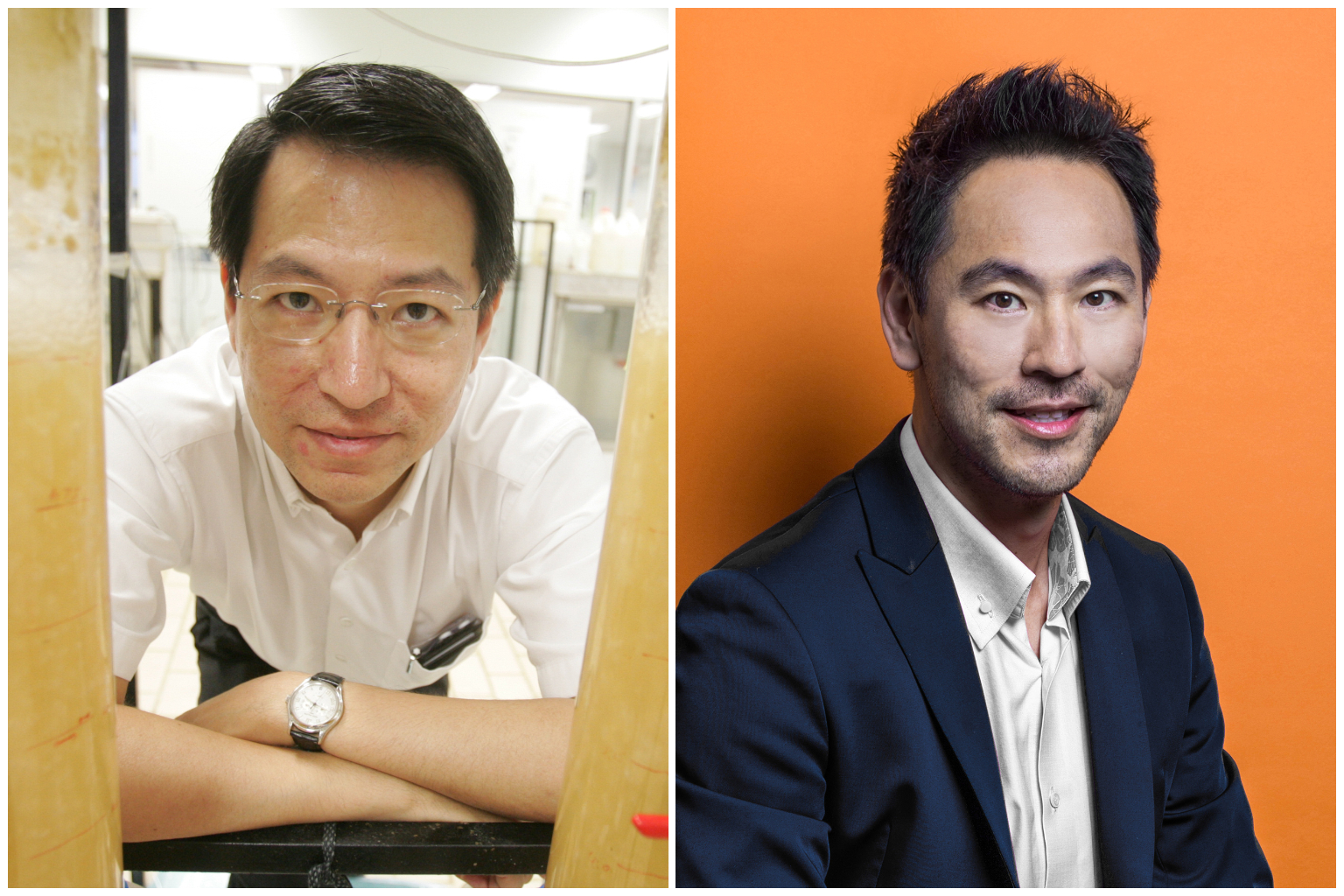Two sons of former president Ong Teng Cheong face off in court battle over family business
Sign up now: Get ST's newsletters delivered to your inbox

Mr Ong Tze Guan (left) has sued his younger brother Tze Boon and six other shareholders for minority oppression.
PHOTOS: MY PAPER FILE, ONG&ONG
SINGAPORE - Two sons of former Singapore president Ong Teng Cheong are facing off in court in a dispute over shareholdings in the holding company that controls the architecture business founded by their parents.
Older brother Ong Tze Guan, 55, has sued his younger brother Ong Tze Boon and six other shareholders, alleging minority oppression.
The engineering-trained Tze Guan had a 28.45 per cent stake in Ong&Ong Holdings.
Tze Boon, 53, an architect, had a 70.43 per cent stake. He has counterclaimed against Tze Guan for defamation and to recover an outstanding loan.
Tze Guan's shares were transferred to the other shareholders in September last year for $1.65 million through a procedure set out in the company's articles of association.
He contends the transfer was procured by the defendants at an undervalue.
Tze Guan is asking the High Court to set aside the "erroneous" valuation and to order the defendants to buy him out, either at an agreed price or at a price fixed by an independent expert.
The suit, filed in April, was first reported by Chinese-language daily Lianhe Zaobao on Thursday (July 1).
Mr Ong Teng Cheong, who served as Singapore's first elected president from 1993 to 1999, died in 2002 at the age of 66. His wife Siew May died in 1999, aged 62.
The couple started Ong & Ong Architects and Town Planner in 1972 . He left in 1975 to take up public office.
In 1992, Mrs Ong incorporated a private limited company called Ong & Ong Architects. Her shares went to her husband and Tze Boon. After Mr Ong's death, Tze Boon held about 70 per cent of the shares, while Tze Guan had about 30 per cent.
Over the years, the company underwent a few name changes. Tze Boon joined the company in 1994 and the business has since grown into a group of companies that also provides engineering and design services.
After a restructuring exercise in 2015, Ong&Ong Holdings became the parent company of the group. Tze Boon is executive chairman of the group.
In his court filing, Tze Guan, who was not involved in the day-to-day operations of the group, said that in May 2016, he proposed selling a percentage of his shares to Tze Boon.
He claims that in the course of discussions over the valuation of his shares, he discovered that Tze Boon had "conducted the affairs of various companies within the group in a manner that was oppressive and unfairly prejudicial" to him.
Tze Guan was removed as a director from nine entities in the group in June 2018 and January 2019. He claims he was removed because he had queried several matters.
In April 2020, his lawyers wrote to the defendants highlighting the alleged oppressive acts. The letter said he wanted to transfer his shares to them at a "fair value" of $5.4 million.
In September 2020, Tze Guan was told that his shareholding was valued at $1.65 million. The valuation was carried out by the company's auditors.
He objected but his shares were transferred four days later.
Tze Boon and the other defendants contend in their defence that Tze Guan's allegations of oppression are factually and legally baseless.
They say it was decided in June 2018 that only active employed executive directors with professional qualifications would be retained as directors of the group.
This policy was communicated to the relevant directors, and three other directors voluntarily resigned.
The defendants say Tze Guan had made a "deliberate election" to sell his shares and they had acted in accordance with the procedure.
Tze Boon is seeking the repayment of an outstanding personal loan - with interest - he had given Tze Guan two decades ago.
According to court papers, Tze Boon lent Tze Guan a total of $700,000 in 2002 and 2003. Tze Guan has repaid $219,983.56.
Tze Boon also contends that allegations of minority oppression set out in the letter sent by Tze Guan's lawyers in April last year amounted to defamation.


